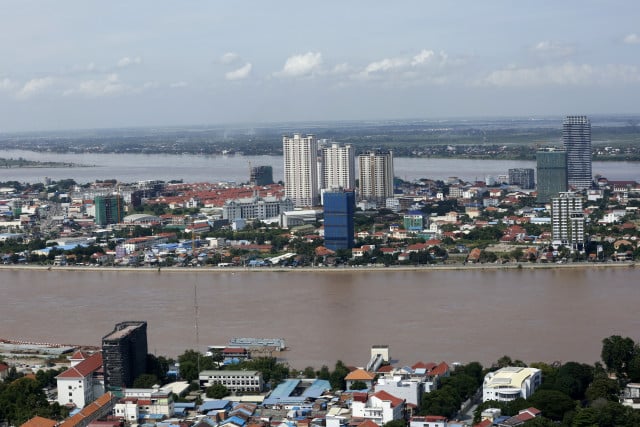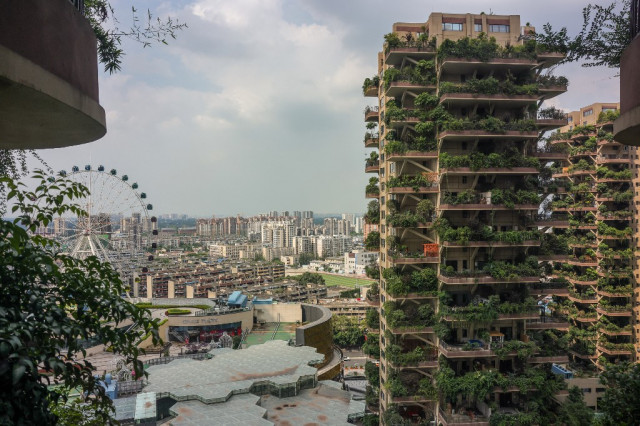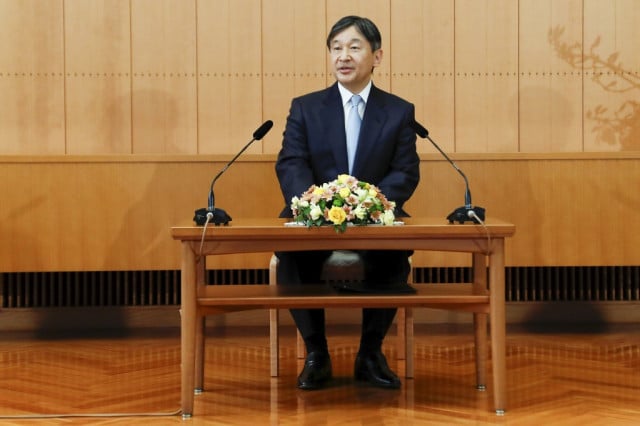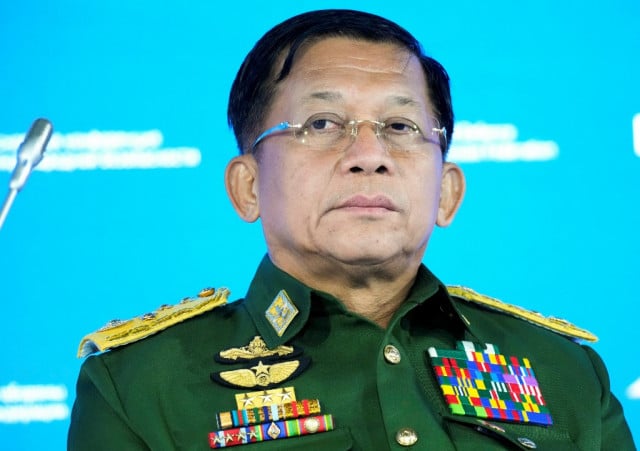Opinion: Looking Ahead: Cambodia in 2022 and Beyond

- By Heng Kimkong
- September 14, 2021 10:24 AM
Last year and this year have been a challenging time for the world, the global economy, and humanity. The COVID-19 pandemic continues to wreak havoc on all countries around the globe, constraining the prospects for socio-economic development, trade, and international collaboration.
At present, the prime focus for most countries is on the fight against the spread of the novel coronavirus and on plans and strategies for economic recovery in the post-pandemic world.
For both developed and developing countries, their common challenge is to balance between sustaining economic growth and saving people’s lives and livelihoods. However, for a small developing country with limited technical and financial resources like Cambodia, the challenge is even more severe. For example, the Kingdom has experienced its worst economic slowdown since the early 1990s, with its economy contracting by 3.1% in 2020, according to the World Bank. The Asian Development Bank’s (ADB) assessment also indicated a contraction of 3.1% in 2020. A recent forecast by the ADB, fortunately, showed that Cambodia’s economy is expected to grow by 4% in 2021 and 5.5% in 2022.
Cambodia’s journey through 2020 and the first half of 2021, as is the case for many other countries, has focused on containing the spread of COVID-19. Although Cambodia achieved some relative success in controlling the viral spread throughout 2020, things have drastically changed since February 2021 when the third community transmission was detected. Since mid-April 2021, daily new cases have been at least a few hundred per day, with new cases in June and July 2021 averaging about 800 cases a day.
As of 11 September 2021, Cambodia has reported around 98,000 infected cases, with a total of 2,019 deaths. Even though around 92,000 patients have recovered, there have been approximately 10 to 30 daily new deaths since June 2021, according to the Worldometer.
As part of the Cambodian government’s measures to curb the spike in COVID-19 infections linked to the Delta variant, a more contagious strain of coronavirus, a new nationwide curfew from 9 pm to 3 am was imposed for a few weeks in early August. Most remarkably, due to effective leadership and support from all key partners, as of 10 September 2021, Cambodia has vaccinated 97.03% of its targeted 10 million adults, with 9.3 million people having received two doses of COVID-19 vaccines. Despite this, as COVID-19 continues to wreak havoc on Cambodia and other countries across the globe, efforts for economic recovery from the pandemic have been undermined.
Ongoing Progress Despite the Pandemic
Despite the pandemic, Cambodia continues to make progress in some key sectors. In the economic sphere, good signs have emerged amid the COVID-19 crisis. Through a joint initiative involving four ministries and two state institutions, the government launched an unprecedented online business registration system to fast-track the registration process that can be completed within less than 10 days. Moreover, new investment projects that would create much-needed jobs were approved in the midst of the pandemic, and this positive investment trend, particularly from China, is likely to continue. Notably, Cambodia signed a bilateral free trade agreement with China in October 2020.
It also signed the Regional Comprehensive Economic Partnership (RCEP) trade agreement in November 2020. This trade deal, involving 15 countries, is the world’s largest regional free trade agreement. It is expected to enhance Cambodia’s foreign direct investment, export markets, economy and gross domestic product (GDP). In addition, Cambodia has also been negotiating bilateral agreements with other key partners such as South Korea, the United Kingdom, the United States, Japan, the Eurasian Economic Union, and India.
In the education sector, a lot of progress has been achieved and several key initiatives are being implemented. Notably, the Ministry of Education, Youth and Sport (MoEYS) is implementing a World Bank-funded project worth $92.5 million to improve the quality of teaching and research in the field of science, technology, engineering and mathematics (STEM) and agriculture. This project, called Higher Education Improvement Project (HEIP), is a six-year project expected to be completed by 2024. HEIP is a successor to the previous five-year Higher Education Quality and Capacity Improvement Project, co-funded by the World Bank and the Cambodian government. Hence, it remains to be seen how HEIP will improve STEM education and research in selected Cambodian public universities such as the Royal University of Phnom Penh, the country’s oldest university.
Relatedly, various ongoing projects are being implemented to improve the quality of teaching, enhance teachers’ capacity, and upgrade school administrators' and principals’ management skills. Although COVID-19 has caused great disruption to the education system and posed unprecedented challenges, including risks of bankruptcy for many private schools and universities, the Education Ministry, with support from different stakeholders, has taken steps to provide learning opportunities to students by disseminating videos lessons through televisions, Facebook, Telegram, YouTube, and websites.
Most importantly, amid the COVID-19 crisis, the Education Ministry has established a new center, called the Centre for Digital and Distance Learning, to promote digital education and improve digital knowledge and literacy among students and teachers. Thus, in a sense, COVID-19 can be seen as a silver lining in the crisis for Cambodia’s education system because it has pushed for the digital transformation of education in the country.
In the realm of foreign affairs, the year ahead will present both opportunities and challenges, as Cambodia will assume its ASEAN chairmanship for the third time. The opportunities lie in Cambodia’s ability to lead ASEAN to navigate regional challenges, particularly regarding the conclusion of the highly anticipated Code of Conduct to address the South China Sea disputes and the implementation of ASEAN’s five-point consensus on the Myanmar crisis. If these can be achieved, Cambodia’s international image will be greatly enhanced.
The challenges, however, are huge. In 2022, the Kingdom will likely face a familiar dilemma in navigating its relations with China, ASEAN member states and major powers such as the United States. Cambodia’s foreign policy – driven by economic pragmatism, peace, stability and domestic politics – will continue to pose great challenges. Specifically, Cambodia’s embrace of China and Chinese-led development initiatives, particularly the Belt and Road Initiative, will place it in the center of the geopolitical rivalry between China and the United States. This creates an alarming situation, as Cambodia used to be a victim of geopolitical and ideological rivalries between great powers. In addition, with the ongoing competition between a rising China and a seemingly declining United States, the future for Cambodia will be fraught with strategic and geopolitical challenges due to its tight alignment with China.
Looking Ahead
In the context of the rising geopolitical tensions, the ongoing COVID-19 pandemic, and the Fourth Industrial Revolution, Cambodia clearly has to deal with numerous challenges that lie ahead. To ensure its relevance and competitiveness in the knowledge-based economy, increased attention should be paid to the education system. It is crucial to ensure the effectiveness of the implementation of various education policies, such as the Policy and Strategy on Information and Communication Technology in Education, Master Plan for Research Development in the Education Sector, Education Strategic Plan 2019-2023, Cambodia’s Education 2030 Roadmap: Sustainable Development, and Policy on Higher Education Vision 2030. Only when Cambodia’s education system can produce highly skilled and competent graduates can the Kingdom move forward with confidence and real progress toward sustainable development.
To achieve sustainability in as many areas as possible, it is vital that the Cambodian government and all relevant stakeholders pay greater attention to youth who make up about two-thirds of Cambodia’s 16 million population. These young people are the future of the nation. They deserve more opportunities and support to realize their potential and transform themselves into high-quality human resources that can lift Cambodia’s profile in the regional and international stage.
Moreover, sustainable development relies on how Cambodia conducts its foreign relations as well. History has shown that unbalanced foreign policy has put Cambodia in danger. At present, Cambodia is often branded as a Chinese client state due to its close ties with China. This perception is dangerous and needs to be taken into serious account by the Cambodian leadership. In addition to the need to address domestic challenges and issues, Cambodia needs to adopt a more balanced, smart and flexible foreign policy to avoid being caught in the middle of the growing U.S.-China rivalry.
Cambodia has come a long way from a war-torn country with a GDP per capita of about $250 in 1993 to a lower-middle-income country with a GDP per capita of around $1,600 in 2019. In economic terms, this is an impressive achievement that should be applauded. In terms of peace and political stability, Cambodia may be the envy of many countries. However, to ensure sustainable development and a prosperous future, the Kingdom needs to accelerate existing reforms and implement new ones to reduce corruption, enhance transparency and accountability in the public sector, improve the education system, foster a healthy research culture, promote judicial independence and social justice, and above all increase the digital and innovative skills of its citizens.
Looking ahead, active and genuine participation from all stakeholders – the government, the private sector, and individual Cambodians, alongside the support from non-governmental organizations and development partners – are needed to navigate the Cambodian ship to prosperity, inclusive growth and sustainable development.
Heng Kimkong is a Visiting Senior Research Fellow at Cambodia Development Center, an Australia Awards scholar pursuing a PhD in the School of Education at the University of Queensland, and a co-founder and lead editor of the Cambodian Education Forum.
This article was originally published by Cambodia Development Center on September 11, 2021.















